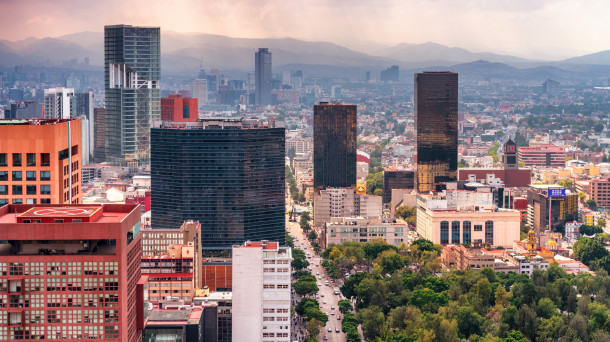
Beyond City Limits. The Case for Metropolitan Mexico
Urban life increasingly extends beyond the administrative boundaries of cities. Today, it is best represented by metropolises—dynamic, interconnected territories whose flows of people, goods, and ecosystems transcend municipal borders. Yet, governing structures—many designed decades or even centuries ago—often fail to reflect this new reality. As a result, metropolitan areas face significant challenges: service delivery becomes more complex, climate vulnerabilities are amplified, and socio-economic segregation grows as opportunities for shared development are missed. The gap between the lived urban experience and the institutional setup is becoming more visible—and more politically pressing—across regions.
How can we govern metropolitan spaces that stretch across multiple jurisdictions more effectively? This question was at the heart of the seminar “La Ciudad de México y las metrópolis mexicanas: retos locales y proyección global” (“Mexico City and Mexican Metropolises: Local Challenges and Global Outlook”), co-organized in June by Mexico City and Metropolis.
The event brought together a wide range of voices, including Alejandro Encinas Rodríguez, Secretary of Planning and Metropolitan Coordination; Rocío Lomberra, General Coordinator for International Affairs; and Jordi Vaquer, Secretary General of Metropolis. City representatives from across the country—including Ciudad Juárez, Guadalajara, Mérida, Puebla, Nezahualcóyotl, Ecatepec, and Tula de Allende—were joined by delegations from four Mexican states (Estado de México, Hidalgo, Morelos, and Querétaro) International observers included representatives from Brazil’s National Mayors Organization, highlighting growing regional interest in cross-border learning.
The discussion focused on inclusive development, the need to overcome fragmented governance, and the role of metropolitan coordination in building more equitable and resilient metropolitan systems. Despite Mexico’s official recognition of metropolitan zones and its strong tradition of local governance innovation, only a handful of Mexican metropolises have permanent mechanisms for coordination and joint governance. This is particularly urgent for the Mexico Valley—the sprawling conurbation surrounding the capital and one of the world’s largest metropolitan areas—but also for urban regions throughout the country.
Metropolis brought to the table international insights and experiences from Latin America, Europe, and beyond, enriching the local debate with global perspectives. As the Metropolis regional secretariat for North America, Mexico City's role as both convener and catalyst is particularly relevant to inspire other federal systems where metropolitan coordination depends on multiple levels of government finding common ground.
During his intervention, Secretary General Jordi Vaquer emphasized how meaningful metropolitan coordination is not only a technical issue but also a political and cultural one, requiring trust, incentives, and long-term vision:
“Administrative boundaries are no excuse for bad metropolitan governance. Across the world, we see examples of supra-municipal coordination and institutions that place people and territories—not artificial limits—at the center,” Vaquer said.
The event reflects a growing momentum for metropolitan collaboration in Mexico and the need to link these national discussions with similar conversations taking place across the globe. This dialogue also helps position Mexican cities as contributors—not just recipients—in shaping the global agenda on urban governance. Metropolis will continue to contribute to these national dialogues and connect them internationally, in pursuit of better metropolitan governance and improved quality of life for all in the world’s largest urban areas.

